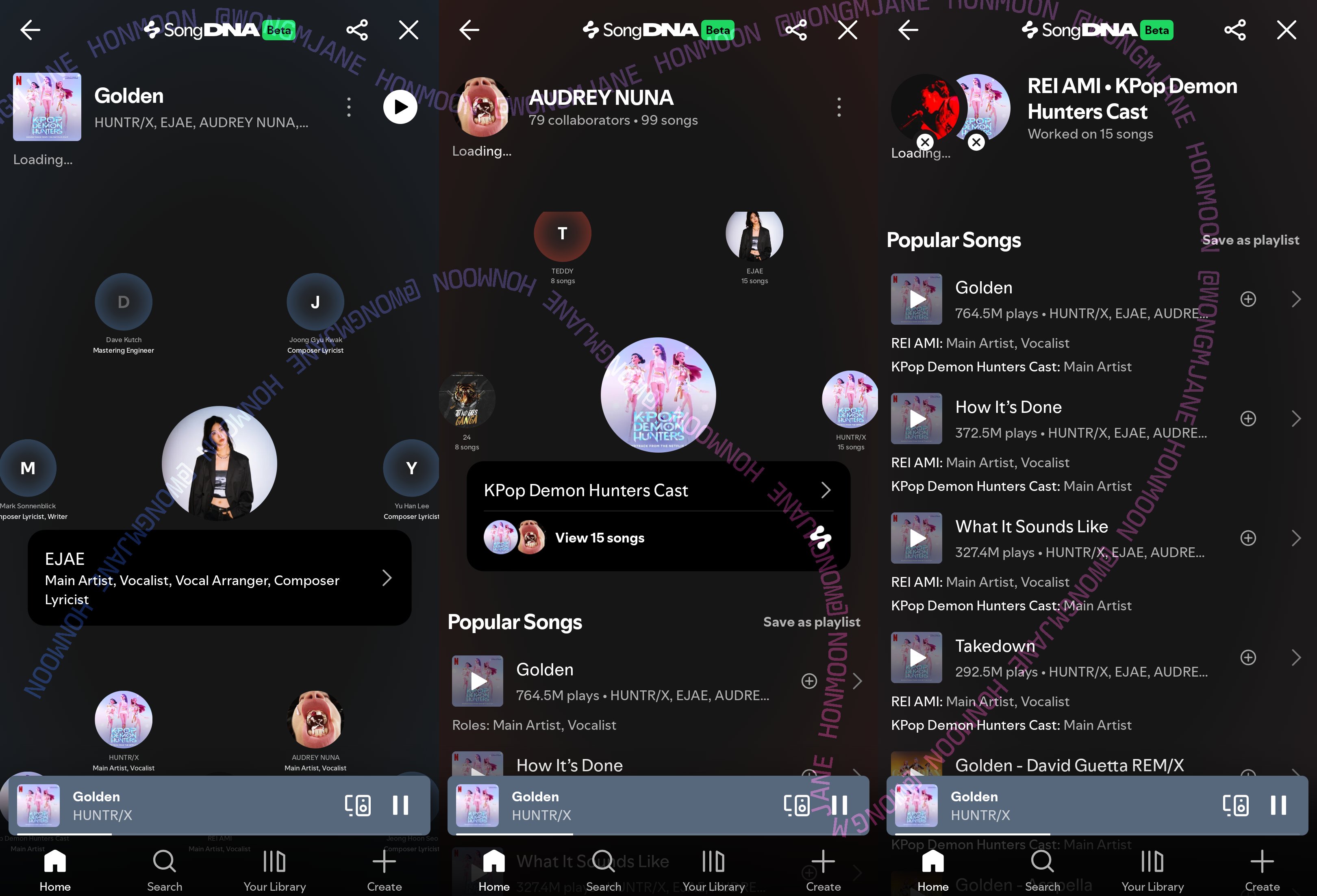Spotify is reportedly copying one of TIDAL's best features for discovering new music, and as a musician I think that's great
Discover the backroom boys who made the Backstreet Boys

Sign up for breaking news, reviews, opinion, top tech deals, and more.
You are now subscribed
Your newsletter sign-up was successful
- References to SongDNA information found inside the Spotify app
- Designed to deliver visual navigation of songs' contributors
- May resemble TIDAL Credits, so you can find new music from the makers of what you already like
Spotify appears to be working on a feature that looks very much like TIDAL Credits, which enables you to discover and find more music from all the people behind your favorite songs.
The feature, called SongDNA, was discovered in the Spotify app code by reverse engineer Jane Manchun Wong, who thankfully managed to get the image below onto X before Spotify removed the relevant code from the app. It appears to offer a new way to discover music, by navigating through the credits of songs.
As a musician, that's a rabbit hole I'll happily fall down, because I love to learn the connections between songs and the people who make them – and I've discovered some of my very favorite artists through their work with others.
For example, I fell in love with Paula Cole's voice thanks to her live work with Peter Gabriel, and I sought out more records featuring producer Jack Antonoff after hearing his work with Taylor Swift.
That's particularly fun in genres such as hip-hop and pop, where an entire cast of people are behind some of your favorite bangers as well as many others – so if you like the new Taylor Swift album produced by Swedish supremo Max Martin, following the thread of his collaborations takes you through The Weeknd's Can't Feel My Face, Britney's Baby One More Time and Backstreet Boys' I Want It That Way. And that, clearly, is time very well spent.

What do we know about Spotify SongDNA?
As TechCrunch reports, the feature enables you to do things such as see what else artists have appeared on; Wong's example was to discover what other songs Rei Ami from KPop Demon Hunters had appeared on.
Another engineer, Chris Messina, found more information: the lines of code indicate that SongDNA will feature the whole network of contributors, not just the performers.
Sign up for breaking news, reviews, opinion, top tech deals, and more.
Features like this aren't just good for fans, and for powering recommendations. They're also useful for artists and their people too: if you're looking for someone to make beats, or to contribute a very particular style, or to sprinkle their production magic on your songs, this kind of discovery can help you find collaborators worldwide.
TIDAL got there before Spotify, so its TIDAL Credits feature gives us an indication of what we might expect: it enables you to check out who played the guitar, who recorded the song, who sat behind the mixing desk, who wrote the lyrics and more.
As TechCrunch points out, you can go even further with data: Pandora's Music Genome project classifies songs not just by their credits but by hundreds of different "traits" including how much of a groove the song has, what gender the main vocalist is, whether the guitar is clean, crunchy or turned up to eleven and so on. That data then powers the personalization engine for pop/rock, hip-hop/electronica, jazz, world music and classical music.
Spotify has now removed the SongDNA code, but when the streamer was approached for comment it declined to make a statement – which indicates that this is indeed a live project, albeit one still shrouded in mystery.
Follow TechRadar on Google News and add us as a preferred source to get our expert news, reviews, and opinion in your feeds. Make sure to click the Follow button!
And of course you can also follow TechRadar on TikTok for news, reviews, unboxings in video form, and get regular updates from us on WhatsApp too.
You might also like
- Spotify AI DJ is getting another slew of useful tools, but I’m still hooked on its audio mixing feature
- Spotify’s Premium Family plan just got a big upgrade for parents – and it could save their Spotify Wrapped, too
- Spotify finally lets you remove individual songs from your algorithm – and now I can stop myself getting side-tracked by my guilty pleasure listens

Contributor
Writer, broadcaster, musician and kitchen gadget obsessive Carrie Marshall has been writing about tech since 1998, contributing sage advice and odd opinions to all kinds of magazines and websites as well as writing more than twenty books. Her latest, a love letter to music titled Small Town Joy, is on sale now. She is the singer in spectacularly obscure Glaswegian rock band Unquiet Mind.
You must confirm your public display name before commenting
Please logout and then login again, you will then be prompted to enter your display name.